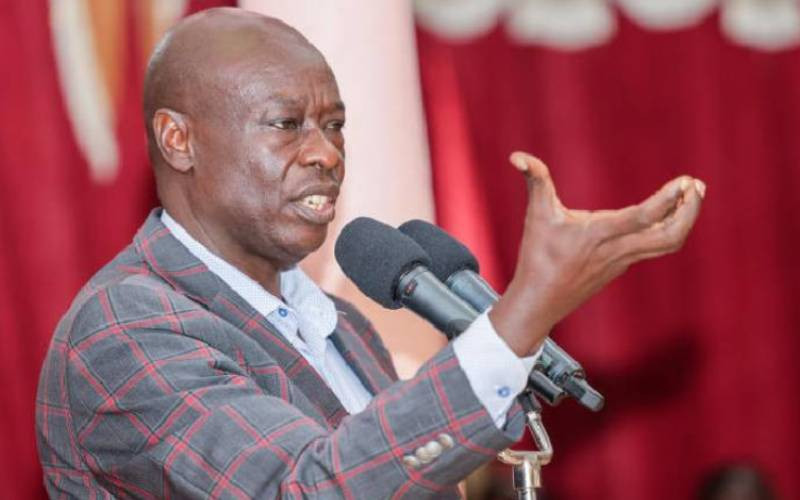David Pocock walks the corridors of power with a large and muscular aura rarely seen in the Senate chamber. An international sporting superstar who has suddenly become one of the most powerful people in federal parliament. An introvert in a clamouring world of ruthless ambition. An idealist in the sometimes dirty game of politics.
A parliamentarian with an encyclopedic knowledge of birds.
Far from being a strategising career politician, Pocock spent most of last year in one of the poorest parts of southern Africa working on a wildlife conservation project. It was from here, among wildlife and the farmers struggling to survive alongside them, that he was asked during a Zoom call to run for parliament.
“We just kind of dismissed it out of hand,” his wife Emma says. “It just seemed like a ridiculous thing.”
The “Voices Of” political group, ProACT, kept asking, and Pocock started thinking about his Canberra community, and “these really big things” he cares about. “I thought if I don’t have a crack at it, I will regret it down the line.”
“Within two weeks we’d kind of launched this crazy Senate campaign,” Emma says. “And here we are now.”
Pocock says that “as an introvert having all these conversations” he has probably talked to more people in the past six months than in the past decade. Because now everybody wants to talk to the independent senator for the ACT, everybody wants a piece of David Pocock.
There have been so many emails requesting meetings, phone calls and lobbyists popping in that his team has had to lock the door to get some work done.
.
In the newly configured Senate, left-leaning Pocock is regarded as the crossbencher who’ll be the government’s first port of call to get the one extra vote it needs to pass legislation.
His wife Emma says plenty of people have written Pocock off as, “just a dumb rugby player. What would he know about politics?”
But traversing gladiatorial arenas, from the bone-crushing game of rugby union to the brutal game of politics, is not as big a leap as you might imagine. Pocock is a man who is used to pressure. Used to facing the All Blacks in full cry, he is not easily daunted.
‘Bam Bam’ makes his mark on rugby
In a 14-year professional career, Pocock played in 83 test matches and three Rugby World Cups for the Wallabies, the Australian national rugby union team. His was a meteoric rise.
At just 23, he became the captain of the Wallabies, and soon became regarded as the greatest defensive openside flanker ever to play the game; two-time John Eales medallist, three-time world player of the year, a man of such physicality that his teammates called him “Bam Bam”.
“We’re talking about a guy that really became the benchmark for professional rugby players in his position in the back row,” rugby commentator Greg Clark says. “He’s a team player, the work ethic was amazing.”
And always, running tandem with his rugby, was advocacy for social justice, environmental activism and philanthropy. Clark recalls Pocock “was always going to take a stand for things he believed in, highlighting things that weren’t right. Whether there was a homophobic slur on the playing field or branding on some boots that he wasn’t happy about because the boot was made in a sweatshop in Asia.”
How a fitness ‘obsession’ turned into a disorder
As a child in Zimbabwe, Pocock was obsessed with nature “and spent so much time in the bush to the degree of actually being quite weird” his brother Steve told Australian Story in 2015.
The eldest of three brothers, Pocock kept pet hawks, sending them flying from his arm. “I’ve always been teased in my family for my love of birds,” Pocock says. “When I was a kid I’d have my bird book and a list of birds in the area and try and tick them all off wherever we went.”
Rugby was his second love. His father Andy would kick a ball with his sons in the backyard, to the point of exhaustion. “Eventually we had this rule,” Andy says, “a hundred more. And I would count and then on a hundred I’d just walk off, otherwise we’d never get out of the garden.”
David knew from the age of seven or eight, he wanted to play for the South African national rugby union team, the Springboks. His brother, Mike, says he was so determined he had to play up an age group or two, “because he used to hurt all the kids and all the mums would complain”.
Gweru District in central Zimbabwe was an idyllic place for young boys to grow up on the family citrus farm.
But around 2000, former President Robert Mugabe decided that half of the white-owned land should be redistributed for black resettlement. For the family, it became a frightening and dangerous place.
Pocock remembers being “pretty scared as a kid, all the different scenarios are going through your mind. I remember one time there were people that we could hear in our area, sort of coming along one of the farm roads from a neighbour’s farm.”
His mother called for them to get in the car and flee. His father, Andy, acknowledges land re-distribution was necessary, but says the “violence was really unjust.”
“The kids saw too much. It affected them greatly, and the kids that they played with on the farm, their parents were getting beaten up.”
The final straw came when a neighbouring farmer and family friend was ambushed and killed, his son shot nine times. After that, Jane says, “there was no turning back, we just couldn’t bear the thought that that could’ve been one of our boys.”
Fleeing Zimbabwe was traumatic. “You felt like you were letting the other people staying behind down,” Andy says. “I had one farmer’s wife telling me I had a yellow stripe down my back and I was a coward.”
The Pocock family arrived in Australian with 11 suitcases. For David, who was 14, there were a lot of anxiety issues.
“I knew I had some trauma stuff in there or some experiences that I needed to actually tell people about and talk through, but in my mind it was, there’s people way worse off,” Pocock says.
“I think my coping mechanism was sport, that is what I threw myself into, I became obsessed about.”
He also became obsessed about not getting fat. When the family went on a sailing holiday in the Whitsundays, the teenager’s weight bench came too. “He would literally be doing bench press, all his gym on the back of the yacht,” Andy says. “I mean, who does that?”
His brother Mike just thought “he was dick”.
Pocock acknowledges he wasn’t easy to like. “It was all about me a bit. I thought I was doing everything I could to become the best athlete and the best rugby player.”
It wasn’t until he was well into his rugby career that Pocock started seeing a counsellor to work through his obsession with food and exercise. “To try and make peace with that scared 12-year-old Dave who lay awake at night wondering what was going to happen.”
Loading
‘Climate change was more important than rugby’
Already a sensation in schoolboy rugby, at 17 Pocock turned professional when he was offered a contract by Perth team, the Western Force. By 20 he had made his Australian test debut in a Bledisloe Cup match in Hong Kong. “Getting the opportunity to represent Australia and play for the Wallabies was a dream come true,” Pocock says.
But he was always much softer than his muscular exterior suggested. Pocock met Emma Palandri in Perth in 2009. “I guess his physical presence and his personality can be quite jarring, because he’s so big, but he’s very soft and gentle underneath.”
Both were Christians who were moving away from a more traditional faith. Pocock recalls talking “a lot about feminist theology and her pretty strong critique of sports culture in Australia”.
Within six months they had decided to get married, but at their ceremony they took a stand, refusing to sign the official marriage certificate until same-sex marriage became legal.
Then two years of rehab after twice rupturing an anterior cruciate ligament while playing for the Canberra Brumbies gave Pocock the space to get involved in things that were “a little bit controversial”.
He was arrested after spending 10 hours chained to mining equipment to protest against a new coal mine in northern NSW. Rugby officials weren’t happy but “the reality of climate change was more important than rugby”, he says.
For one of the most talented players of the game, the end of his career was a disappointment. The Wallabies were knocked out by England in the quarterfinals of his third Rugby World Cup in Tokyo in 2019. Then COVID shut down the 2020 season where he was playing for Japan’s Panasonic Wild Knights. He knew that “mentally and physically it felt like time to move on. There were other things that felt pressing and important and daunting.”
He worked with Emma on Frontrunners, their organisation that works with athletes and sporting groups who want to tackle climate and environmental challenges.
Last year Pocock graduated with a Master of Sustainable Agriculture from Charles Sturt University.
Then he, his brother Steve and a friend started the Rangelands Regeneration Trust in Zimbabwe, a 70,000-hectare community-owned wildlife conservancy to preserve biodiversity but create sustainable economic opportunities. “I guess there is a conundrum where the world’s most spectacular animals live among the world’s poorest people. So the only way of preserving these animals and their habitat is establishing a model where the people who live among them can really benefit,” Steve says.
Then came the call from Canberra.
“From the start it was how can we make politics about people again,” Pocock says. “That was kind of our guiding star. For a decade climate action has been a political football. People want to see the government build the kind of future we want.”
Pocock unseated Liberal Senator Zed Seselja in what was an historic victory for an independent.
‘I hope he knows what he’s doing’, Hanson warns
The Canberra Times’ chief political correspondent Karen Barlow is watching Pocock’s three-year term with interest, not least to see how someone who’s “not the classic, A-type personality that seems to populate much of the federal parliament” will handle the rough-and-tumble of political life.
“It’s early days and he’s being tugged in all different directions because he is that crucial crossbencher and his vote is very much wanted,” Barlow says. “He’s very much lobbied, but he’s also a person who is out in the community. Politics is all about compromise. How is he going to be with all these people in Parliament House?”
Fellow crossbencher One Nation senator Pauline Hanson wasn’t “terribly impressed” with his maiden speech and his support for an Indigenous Voice to parliament, but finds him “a very reasonable man to talk to”.
Senator Jacqui Lambie, for one, doesn’t see Pocock as being a “walkover man”.
“If you want to take him on in a scrum, be my guest. I’d buy tickets to watch that. I know where my money’s going.”
Last Monday was the start of a busy week in the Senate as the bills came through at a cracking pace; the Territory Rights and Climate Change bills. The media too wanted a piece of Pocock as he rushed from live radio to doorstop interviews in the press gallery to lunch time interviews in the courtyard.
Ultimately Pocock and the two Jacqui Lambie Network senators gave the Albanese Government the numbers it needed to pass the Climate Change Bill 2022, enshrining a 43 per cent emissions reduction target, but not before the bloc had negotiated four amendments to strengthen the integrity of the legislation.
Senator Hanson, who questions whether climate change is brought about by humans, hopes Pocock understands what he’s done.
“He’s going to have the final say in this place where the legislation gets passed or not,” Hanson says. “You have to know the truth behind every bit of legislation because of the impact it has on people’s lives. So I’d say it is a big job and I hope he knows exactly what he’s doing.
“His decision will impact all Australians.”
Loading Instagram content
As Pocock’s first foray into the legislative process, the climate bill was an issue very much on his home turf. His close alignment with the Albanese government’s election priorities, including climate and a Voice to Parliament, could see Pocock continue to get early runs on the board. But three years in the Senate is a long time in politics
Former independent MP Rob Oakeshott warns things could become complicated for Pocock when the policy discussion turns to more thorny issues.
“When you’re that key number in the Senate, you have to make decisions about all of government,” he says. “About issues that you haven’t thought about before. And that’s probably where the landmines are, those issues you’re not confident on.”
David Pocock is still only 34, but feels he has little time to waste. “I want to get stuff done,” he says. “I want to actually deliver for people in the ACT. I want to be a senator that they are proud of.”
Rob Oakeshott also hopes Pocock’s time in federal parliament could be transformative, perhaps proving to other politicians that “you can be a strong man in politics without having to be a boofhead”.
“What is really interesting is that you can wield power without having to be an alpha male,” Oakeshott says. “And if he can hold true to that over his time in politics, I think he’ll do a lot for the culture of Canberra. He doesn’t try to show that he’s the toughest guy on the block. He is a considered man and that is OK.”
Watch Australian Story’s David Pocock: A Whole New Ballgame 8:00pm on ABCTV, iview and Youtube.




















Discussion about this post